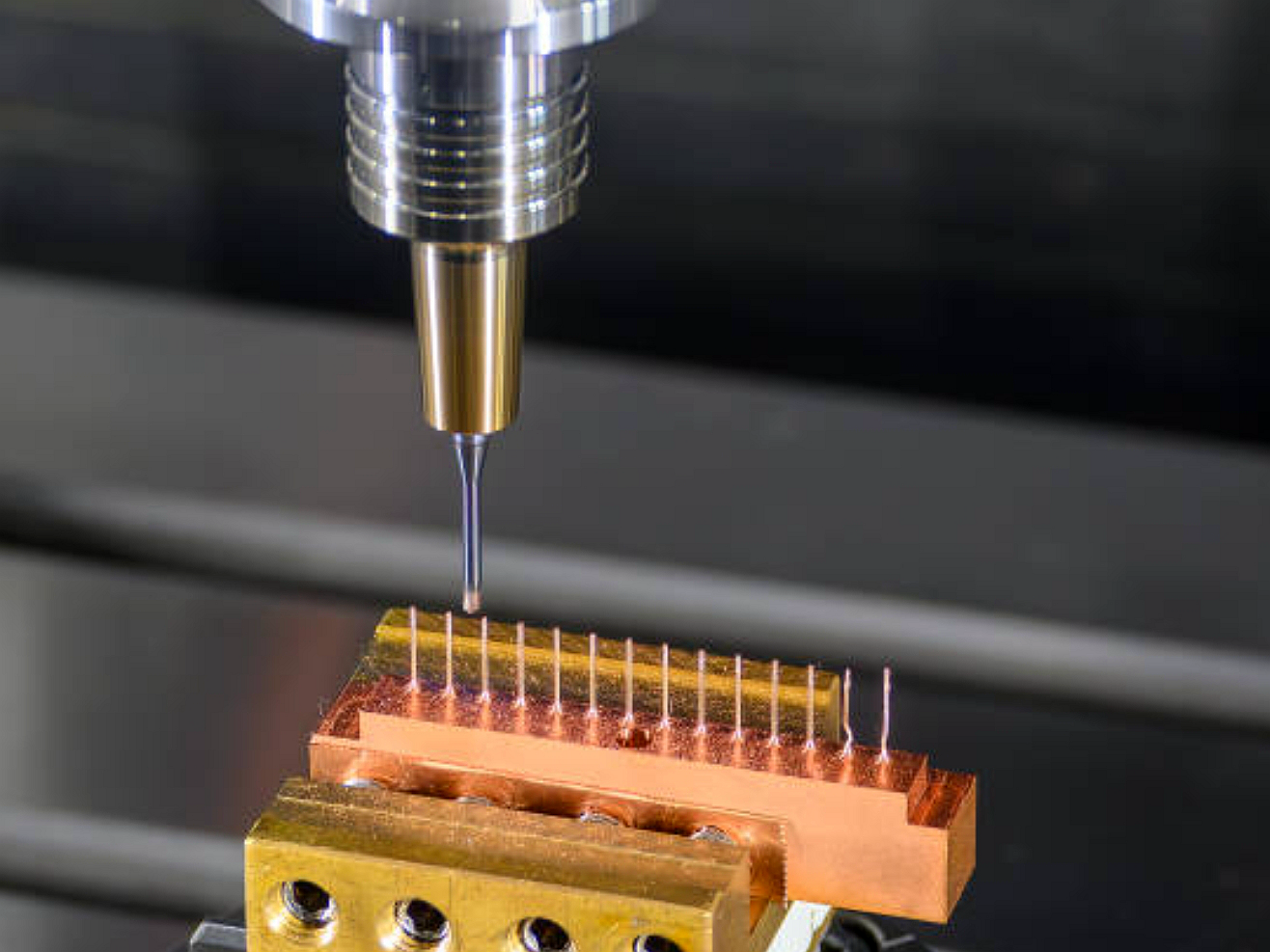Custom Copper CNC Machining for Industrial Equipment Electrical Connectors in High-Power Systems
Introduction
Precision electrical connectors are crucial for reliable performance and safety in high-power applications in industrial equipment manufacturing. Copper CNC machining, known for its excellent electrical conductivity and thermal management properties, has emerged as a preferred method for manufacturing connectors. This case study highlights our capabilities in custom precision machining for copper components, specifically tailored to meet the demanding requirements of industrial electrical equipment.
Manufacturing Process
Our advanced facility employs specialized CNC machining techniques tailored explicitly for copper materials, ensuring unmatched precision and quality:
CNC Milling: Essential for creating complex geometries and achieving precise dimensions necessary for intricate connector components.
CNC Turning: Ideal for producing high-precision cylindrical connectors, contacts, and terminals.
CNC Drilling Service: Provides accurate and consistent hole placements, which are crucial for maintaining optimal electrical conductivity and ease of assembly.
CNC Grinding: Delivers fine surface finishes required for superior electrical contact, reducing energy losses.
Multi-Axis CNC Machining: Enables production of complex connector geometries with exceptional precision and minimal setup.
These processes are optimized not only to minimize waste but also to enhance the electrical and mechanical performance of the final components, meeting the rigorous standards of the industrial equipment sector.
Material: Copper for Electrical Connectors
Copper, particularly pure grades such as C101 (T2) Copper and Oxygen-Free Copper (C102), is widely chosen for electrical connectors due to its exceptional properties:
Outstanding electrical conductivity ensures minimal resistance and heat generation, optimizing energy efficiency.
High thermal conductivity aids in rapid heat dissipation, which is crucial in high-power electrical applications.
Exceptional corrosion resistance significantly prolongs the connectors' service life, even in harsh operating conditions.
Superior machinability allows detailed customization and precision fabrication of intricate connector designs.
These distinctive properties make copper ideal for producing robust and efficient industrial electrical connectors.
Surface Treatments
To further enhance durability and performance, copper CNC machined electrical connectors undergo specialized surface treatments, including:
Electroplating: Applying gold, silver, or tin plating significantly increases conductivity, enhances corrosion resistance, and prolongs component lifespan.
Electropolishing: Achieves smooth, defect-free surfaces, reducing electrical resistance and enhancing connector efficiency.
Passivation: Provides essential protection against oxidation and environmental exposure, maintaining long-term performance reliability.
Brushing Techniques: Enhances surface quality and aesthetics, contributing to improved electrical contact reliability.
Each surface treatment is carefully chosen based on the industrial environment's specific application requirements and operating conditions.
Industry Application
Custom CNC machined copper components are extensively utilized throughout various sectors of industrial equipment, notably in:
Electrical Connectors: Precision-crafted high-current terminals, plugs, and sockets are used extensively in power distribution systems.
Switchgear Components: Durable and reliable contacts and terminals critical for safe operation.
Transformer Components: Precisely machined copper elements ensure effective heat dissipation and maintain electrical efficiency.
Motor and Generator Components: Copper parts that are essential for achieving optimal electrical performance and system reliability.
Industrial equipment manufacturers rely heavily on precision CNC machined copper components to ensure consistency, superior performance, and longevity in their products.
Advantages and Limitations
Advantages:
Superior electrical conductivity significantly reduces energy losses, improving overall equipment efficiency.
High thermal conductivity helps manage heat effectively, reducing the risk of overheating and subsequent equipment failure.
Exceptional corrosion resistance extends component service life, even under extreme environmental conditions.
Precision CNC machining guarantees tight tolerances and enhances connector reliability, which is essential for demanding industrial applications.
Limitations:
Copper is relatively softer compared to other metals, which can lead to deformation during handling or machining if not handled correctly.
Higher machining costs due to more frequent tooling replacements necessitated by copper’s tendency to wear down cutting tools.
Potential oxidation risk if copper components are not adequately treated or coated, requiring careful management through surface treatments.
Despite these challenges, the unmatched electrical and thermal performance advantages justify copper’s widespread adoption in critical industrial equipment manufacturing.
FAQs
Why is copper preferred for CNC machined electrical connectors?
Copper offers exceptional electrical conductivity, thermal management, and corrosion resistance, making it ideal for electrical connectors in industrial applications.
Which surface treatments enhance the performance of copper electrical components?
Electroplating, electropolishing, passivation, and brushing are popular treatments enhancing copper electrical components' durability and performance.
How does CNC machining improve the electrical conductivity of copper parts?
CNC machining produces highly precise components with tight tolerances, minimizing imperfections and significantly improving electrical conductivity and reliability.
What industries benefit most from CNC machined copper components?
Industries such as power distribution, switchgear manufacturing, transformers, motors, generators, and general industrial equipment extensively benefit from CNC machined copper parts.
How can oxidation be prevented in CNC machined copper parts?
Oxidation in CNC machined copper parts is effectively prevented by applying protective surface treatments such as passivation, electroplating, or electropolishing.

